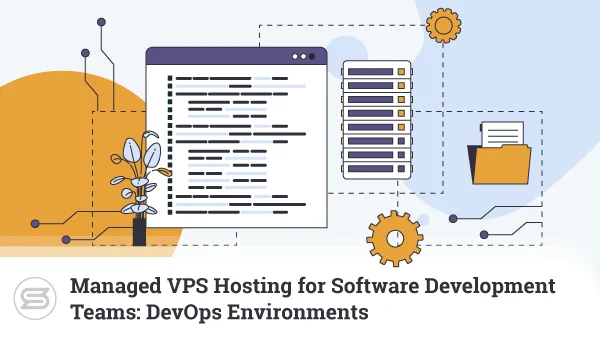Choosing the right Virtual Private Server (VPS) hosting provider should be based on performance, ease of use, support, and a few other things. Paying attention to this can make your web administration work a lot smoother.
Over the past decade, the number of users on the Internet has more than doubled. To serve them, it has become increasingly vital for websites to offer superior performance and reliability. That’s where your web hosting provider plays a part too.
Why VPS?
VPS hosting today has advanced quite a bit over the past. It has become a lot easier to handle and in some cases, prices have dropped significantly too. It is also undeniable that by nature VPS offers superior characteristics over shared hosting.
Search engines like Google demand that websites perform well as part of their ranking criteria. As website owners, we need to pay attention to this so we can meet those needs and get our share of traffic.
Using a VPS is one way of ensuring that. However, there are many other compelling reasons to opt for VPS hosting. The more important question though, is how to know if a web hosting service provider is really good?
Signs of a Good VPS Hosting Provider
When it comes to VPS hosting, there are a number of factors you can seek to evaluate. Combined, these areas will give you a better idea of how suitable the host is for your needs. These include;
Server Uptime
Uptime is the measurement of reliability for VPS hosting. It is normally presented or evaluated as a percentage. For example, if you read that a host offers 99% uptime, it means that over a period of one month, the web server on average is only down for a combined period of not more than 7 hours.
The higher the uptime offered by web hosting companies, the more reliable your website will perform. This is important for both your users and your search rankings as well. Make sure the web host you’re looking at offers an uptime guarantee as part of their Terms of Service.
Speed
Web server speed is not the same as web page speed. The former is a rating of how long your web hosting server takes to respond to a query. It is indicative of the quality of service that a web hosting service provides.
Speed is an important factor in search rankings, and while you can make tweaks to improve web page loading speed, doing so for web server speed is not really possible. This will rely on the web host itself.
Managed or Unmanaged
VPS hosting is a bit more technical in nature. Because of this, better web hosting providers will offer you a choice of Managed or Unmanaged VPS plans. For those who want to focus more on building and growing your websites, Managed VPS is a better solution.
With a Managed VPS plan, the web host takes over responsibility for technical upkeep of your VPS account. This means less housekeeping work for you and more time to dedicate to what you really need instead.
Not all VPS hosting providers will offer a choice of Managed and Unmanaged VPS plans. In some cases, hosting providers may be reluctant to offer Managed hosting plans for various reasons including technical challenges, cost of service, or more.
Cost
In general, costs have gone down where most technology is concerned. For web hosting though, you need to focus less on the actual cost of the service. Instead, a cost-benefit analysis will prove far more beneficial.
Even if you’re paying top dollar for the best in the business – do you really need everything that’s included in that plan? Remember though, too cheap a plan can be indicative of cost-cutting somewhere, so be cautious of dirt-cheap VPS hosting!
Customer Support
Perhaps the most vital area when it comes to VPS hosting is customer service. Nobody likes to have to wait for ages just to get a response. Where possible, get in touch with the support team a web host has in place before you sign up for the service.
Aside from that, it would also be a good idea to evaluate what channels exist for customer support. While a ticketing system is typical, some web hosts will make use of a variety of channels including live chat, phone support, knowledge base, or even host a community forum.
Backup
To increase the reliability of your site, having a solid backup in place is also generally a good idea. This is one area that you need to ensure your VPS host does have in place. While many hosting companies offer backups, they may differ in service range.
For example, how frequently backups are carried out, how long the data retention period is, how simple it is to restore data from a backup, is it automated, can customized scheduling be arranged, and more.
The broader the range of options, the better the plan will be. However, this is something which can also be implemented at the account level, so does not need to play too much of a focal point.
Security
While all VPS hosting is generally more secure than shared hosting, there are still some differences between VPS providers. Part of this is the type of VPS hosting that is available. For example, service providers with Cloud-based VPS solutions can offer better security.
This should be a major consideration when choosing any VPS plan since any issues with security can lead to not only financial loss, but serious reputational damage as well.
Special Features
This is one area that will indicate to you how serious a web host is about its business and customers. To be honest, most web hosting companies typically offer similar products and product ranges. The devil, as they say, is in the detail.
Does the VPN host you’re considering offer something that will help give you an edge over your competition? For example, does it offer special cost-saving features, performance optimizations, or something else not readily available in the market?
VPS with ScalaHosting
ScalaHosting has been around for some time now and has built its reputation as a reliable service provider. When it comes to VPS, there are a number of things that help ScalaHosting stand out from the competition.
On a more basic level, ScalaHosting VPS plans are Cloud-based, which means they offer even better performance and reliability over traditional VPS hosting plans. Looking towards detail, there is also SPanel and SWordPress Manager to consider.
These help in a few ways such as improving user experience, greater cost-effectiveness, and better performance – all offered at extremely competitive rates.
Conclusion
Website owners should choose a strong partner for their web hosting needs. Failing to choose a reliable VPS service provider can lead to serious repercussions further down the road.
Make a list of the areas most vital for your site to help you with your evaluation. Then match those against what various service providers have to offer. Remember, cost isn’t everything and cutting too many corners in hosting cost can lead to increased hours trying to fix problems in the future.
Frequently Asked Questions
Q: Which VPS hosting is best?
A: ScalaHosting Managed Cloud VPS plans offer extremely competitive features at reasonable rates. Aside from the extra reliability and performance of Cloud technology, it comes with value-added features like SPanel that gives users a choice over expensive licensed solutions.
Q: Do I need VPS hosting?
A: VPS hosting is a much better choice over shared hosting for many reasons. Website traffic typically grows over time, and if you find yourself outgrowing your plan, it is typically time to move on with a VPS plan.
Q: Is VPS faster than shared hosting?
A: VPS hosting is almost always faster than shared hosting. A major reason for this is the dedicated resources that VPS plans get, including CPU time, memory, bandwidth, and storage space.
Q: How much VPS do I need?
A: Part of the beauty of VPS plans is that they are highly scalable. You only need to pay for the resources that your site requires. If traffic increases later on, simply increase your resources quickly and easily.
Q: What are the benefits of VPS hosting?
A: In general, VPS hosting plans perform better, are more secure, offer high customizability, are extremely scalable, and more. These allow you to host websites that offer superior performance and better safety for your users.
What is a VPS – Everything you need to know!



